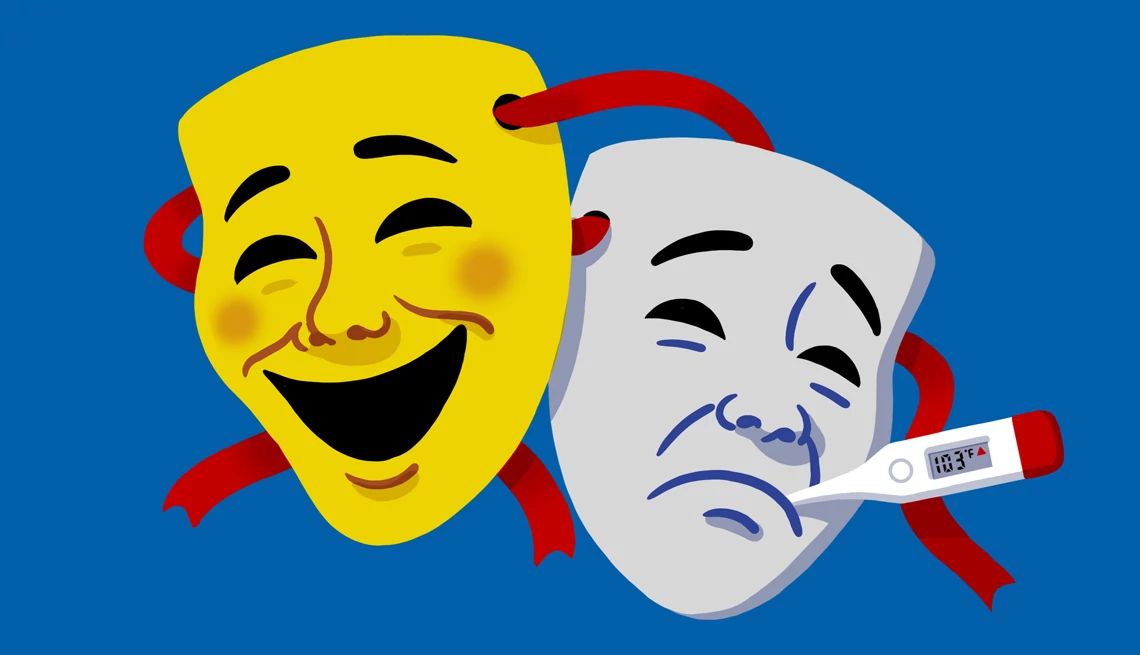AARP Hearing Center


I would rather get a colonoscopy than attend a social gathering where I don’t know anyone. Sometimes I lie awake at 3 a.m. worrying about blunders I made 40-plus years ago (Stacey, I’m sorry I disinvited you from the pool party in third grade). I will go out of my way to avoid open conflict with other people.
My tombstone could accurately say, “Never missed a deadline,” a trait that’s served me well as a freelance writer. And while I love trying new things, please don’t ask me to be spontaneous on a Wednesday night.
In other words, according to one online personality test, I score low on extroversion; alone time, rather than social time, is what energizes and restores me. I also lean toward neurotic, which means I tend to have a negative emotional response when faced with frustration or loss.
But I’ve got pluses, too: I try to go with the flow while wearing a smile. That makes me highly agreeable. I’m fairly open to new experiences (as long as they’re planned ahead). And I am extremely conscientious, which explains my epitaph.
Personality warning lights
Learning about the “Big Five” traits is a common way to scientifically assess personality. Where people fall on the spectrum of those traits can help predict how their life will turn out, including success at work, the quality of their relationships and even their health and wellness.
The Big Five Personality Traits
- Agreeableness: a tendency to act in a cooperative, unselfish manner
- Extroversion: being sociable, outgoing and expressive
- Conscientiousness: being responsible, organized and hardworking
- Openness to experience: a tendency to be open to new cultural, aesthetic or intellectual experiences
- Neuroticism: leaning toward the negative with a tendency toward psychological distress; the opposite of emotional stability
A lot of research has gone into sorting this out: A review published in 2024 linked high neuroticism with poor sleep and showed that introverts get better-quality sleep. People who scored highly on conscientiousness and agreeableness were more likely to be morning people. A study published this year found that personality traits had stronger ties to mental health problems than previously thought, including a correlation between neuroticism and distress. In a 2024 research review, people who were more neurotic, less extroverted and less conscientious were more likely to be diagnosed with dementia in their later years.
As for the ultimate health outcome, plenty of research, including a 2017 analysis of 15 international datasets, found that people who leaned toward neurotic and scored low on conscientiousness, extroversion and agreeableness were more likely to die prematurely.
As I move through my 50s, what if some aspects of my personality are dashboard warning lights pointing to health problems or even an early death? And if the lights are indeed flashing red, is there anything I can do besides worry about my personality, thus possibly further harming my health ad infinitum?






































































You Might Also Like
How Can I Tell If I Have Adult ADHD?
A growing number of adults are being diagnosed with the condition
How Tourette Syndrome Affects 5 Older Americans
Roughly half of Americans with the disorder go undiagnosed
AI Breakthrough Enhances Parkinson’s Treatment
New adaptive DBS technology improves patients’ lives